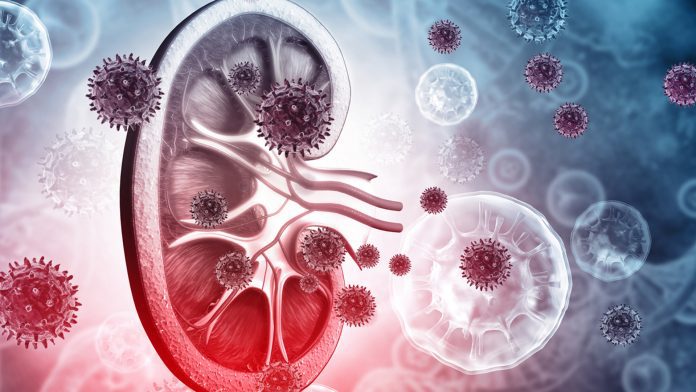
An existing angina medicine could be used as a kidney disease treatment, according to new research from the University of Edinburgh.
Researchers have found that medicines typically used to treat angina and high blood pressure effectively protected mice from long-term damage to the kidneys and cardiovascular system caused by acute kidney injury (AKI).
The study has been published in Science Translational Medicine.
The researchers hope the findings will pave the way for improved kidney disease treatment and protection against AKI in humans. AKI is a common illness that occurs in approximately 20% of patients who are admitted to emergency care in the UK. The condition is often caused by other illnesses that reduce blood flow to the kidneys, or due to toxicity in certain medicines.
Kidney disease treatment needs to work fast
AKI needs to be treated quickly to avoid fatality. Once the kidneys recover, AKI can still cause long-lasting damage to the kidneys and the cardiovascular system. Around 30% of all patients who survive an episode of AKI are left with chronic kidney disease (CKD). The remaining 70% recover full kidney function but remain at a 30-fold increased risk of developing CKD.
The researchers at the University of Edinburgh found that patients with AKI had increased levels of endothelin in their blood. Endothelin is a protein that activates inflammation, causing blood vessels to constrict. Even when kidney disease treatment is complete and the patient’s kidneys have fully recovered, blood endothelin levels can remain high.
The research team found the same increase in endothelin in mice with AKI. They then decided to treat the mice with medicines that block the endothelin system to test their potential as a kidney disease treatment. The medicines, which were normally used to treat angina, work by blocking the production of endothelin and shutting off endothelin receptors in cells.
Angina medicine had multiple benefits in mice
The mice were monitored for four weeks; those that were treated with the endothelin-blocking medicines were found to have lower blood pressure, less inflammation and reduced scarring in the kidneys. These mice also had more relaxed blood vessels and improved kidney function compared with untreated mice.
“AKI is a harmful condition, particularly in older people and even with recovery it can have a long-term impact on a person’s health. Our study shows that blocking the endothelin system prevents the long-term damage of AKI in mice,” said Dr Bean Dhaun, senior clinical lecturer and honorary consultant nephrologist at the University of Edinburgh’s Centre for Cardiovascular Science.
“As these medicines are already available for use in humans, I hope that we can move quickly to seeing if the same beneficial effects are seen in our patients,” he added.
“Impaired kidney function that results from acute kidney injury can also increase a person’s chance of developing and dying from heart and circulatory diseases, so it’s vital we find ways to reduce this risk,” explained Professor James Leiper, associate medical director at the British Heart Foundation.“
“This promising research suggests that widely available medicines could help to tackle the impact of acute kidney injury before it can cause damage and further complications. While further studies will be needed to demonstrate whether this kidney disease treatment is safe and effective for patients, this early research is an encouraging first step,” he concluded.

























